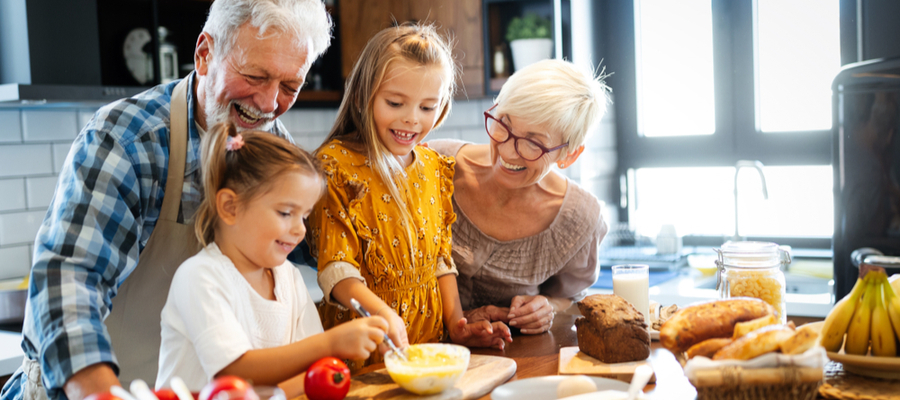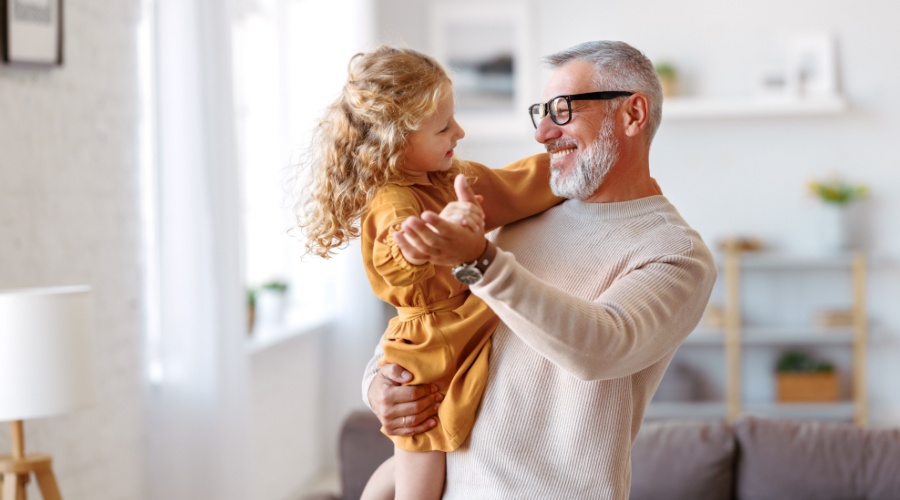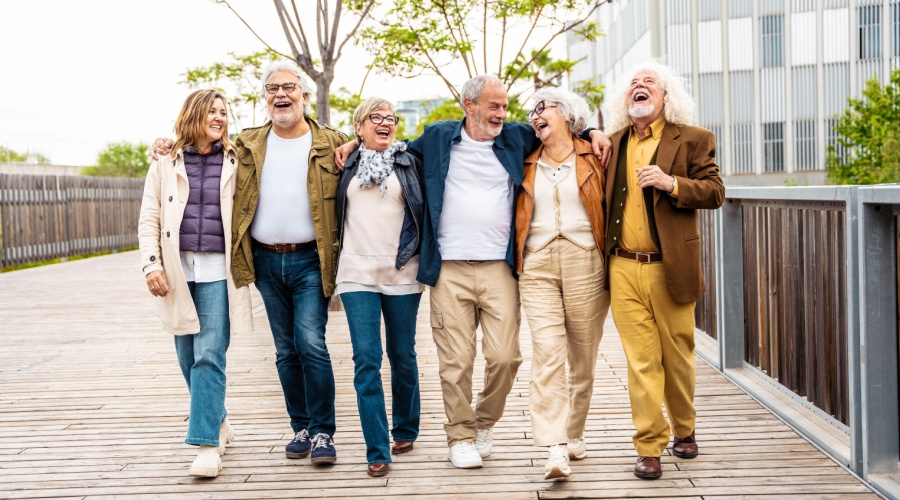It really pays to take home safety seriously. Every year there are around 1.5 million visits to the hospital as a result of accidents. Almost a third of those injuries are caused by accidental falls and many of those happen at home. Of all the different types of home accidents, most can be avoided.
The consequences of an accident at home can vary greatly. At best, it might just mean a trip to your local hospital and a week or so of recovery. More serious injuries could lead to either temporary or permanent restricted mobility.
You might have to pay for home renovations to make your home more accessible for your new restricted mobility. Or, you may be forced to sell your home and move into retirement or assisted living accommodation where you can be better looked after.
Retirees need to be more careful than most, as they account for over half of accident-related hospitalizations. Can accidents be prevented? They certainly can, in fact an estimated 90% of serious injuries are preventable. We take a look at the common causes of home accidents and offer up some fall prevention tips for Canadians at home.
Tips for prevention of home accidents and falls
Many people feel safest in their home, after all, it’s where they spend most of their free time and feel the most comfortable. Not surprisingly, a whopping 93% of Canadians prefer aging in place. Reasons include feeling secure and independent, loving their home, location convenience and familiarity with their neighbourhood.
However, retiree accidents happen in the home more than anywhere else. If you or your loved ones are older retirees living at home alone, it’s good to be aware of some of the risks:
- Elderly falls and accidents in the home: According to Statistics Canada, 63% of injuries involving adults aged 65+ are the result of a fall. Of these, 55% take place at home, while walking around or performing daily chores.
- Crimes and scams: Households with retirees may be more vulnerable to thefts, house break-ins or scams. Older people are often targeted by thieves and fraudsters. You can learn about ways to protect yourself from online scams by reading this article.
All types of accidents at home can badly affect your physical and emotional well-being and your living arrangements may become very expensive. Depending on your healthcare plans and insurance, any out-of-pocket medical expenses could start eating into your retirement funds. Following some simple fall prevention tips and avoiding any accidents at home should therefore be a top priority.
Elderly fall prevention is usually a mix of:
- Health and wellness initiatives: For staying active and improving sight and balance
- Good housekeeping: This includes activities such as cleaning spills immediately, closing cabinet doors properly, securing rugs and carpets, minimizing clutter, and ensuring that the walkways are free of obstacles.
- Minor home improvements: It is important to make your living spaces safe and accident-free. Read on to learn more about fall prevention for older Canadians.

Are falls and accidents at home preventable?
Fall prevention for Canadians 55+ is not difficult. In fact, most common accidents at home are preventable. Following a few home safety tips will allow you to live a safe, accident-free and comfortable life in your home for many years to come. Read on to know how to prevent accidents at home and learn all about fall prevention in older adults.
What are the injuries that can occur among retirees at home?
There are several causes of home accidents and a wide variety of injuries that they bring. Some of the most common injuries are:
- Hip fractures from falling
- Wrist and ankle sprains from falls or getting out of bed/a chair
- Burns from cooking, cigarettes and hot water
- Head injuries from falling
- Poisoning from carbon monoxide (such as from gas stoves, furnaces, fires, etc.)
While falls can happen anywhere in the house, there are a few danger spots where these types of home accidents are more likely to happen. The bathroom is often a hot spot for falls, especially when getting in and out of the bath. Other fall hot spots include around stairs, in dimly-lit areas, over loose rugs and in the garden.
Other causes of home accidents include burns and cuts, and these mostly happen in the kitchen. Carbon monoxide poisoning can happen anywhere in the house but tends to be more prevalent near the source of the gas (such as the furnace room).
Personal safety tips for the elderly living at home
As we age, the changes in our health can all lead to home accidents. Worsening eyesight, reduced strength, balance issues and slow reflexes can all contribute to many types of home accidents, such as falls.
These accident prevention tips can help you avoid the life-changing injuries that elderly accidents in the home can often cause.
Fire hazards: Fires can start and spread very quickly and the damage to life and property can be devastating. These safety precautions can help with the prevention of fire accidents:
- Be very careful around open fires and use a surround to add extra protection to your fireplace or heaters.
- Avoid placing flammable items near the fire – if you use a chimney, or flue, have it swept and inspected at least once every year.
- Position your portable heaters or candles away from furniture and drapes.
- Be extra cautious while cooking, especially when using gas or when frying.
- Install approved smoke detectors on each floor and try not to block any grills or air vents.
- Get your appliances serviced at regular intervals.
- If you suspect a gas leak, turn off the supply, throw open your windows and call your utilities provider immediately.
- In case of fire, know which escape routes you can use – step out, stay out and call the fire department.
Electrical safety: Many types of home accidents occur due to negligence in electrical safety. Here are some electrical safety precautions at home to avoid accidents:
- Get rid of any appliances with worn or damaged cords.
- Service electric blankets regularly.
- Don’t overload electric sockets.
- Be extra careful while using power tools. Consider upgrading to Ground Fault Circuit Interrupter (GFCI) outlets for added protection against shocks or other electrical hazards.
- If you live in an old home, get your electrical wiring and circuit boards inspected by a qualified electrician once every five years.
Common kitchen accidents and how to prevent them: Some typical causes of accidents in the kitchen are from sharp knives, hot stoves and boiling water. The two most important ways to prevent accidents in the kitchen are planning your workspace and storing your cooking tools and appliances in appropriate locations. Here are some ways how you can prevent kitchen accidents:
- Keep heavy utensils or items of daily use in easily accessible cabinets or storage areas – bending awkwardly could lead to a pulled muscle or tendon, whereas climbing step stools or ladders could cause a fall.
- Be cautious when handling kettles, sharp knives, or hot pan handles.
- You can prevent knife accidents in the kitchen by keeping knives sharp and always using a chopping board (and chopping away from your hands).
How to prevent fire accidents at home:
- If you smoke, only do so outside, in a safe designated area, away from flammable material. Never smoke in bed.
- Avoid using candles: if you do use them, make sure to put them out at bedtime and when you go out.
- Get rid of old electrical appliances.
- Never leave cooking pots and pans unattended on the stove.
- Get heating equipment (such as furnaces) checked regularly.
Fall prevention tips for retirees at home
Studies show that about 67% of falls happen at the same level, while the remaining are from a height. Here are some tips for fall prevention at home in the elderly:
- Address health and wellness: Improving your overall health is a critical first step in preventing falls at home.
- Focus on regular workouts or moderate physical activities for increasing your flexibility, strength and balance, and keeping your bones and muscles strong.
- Include sufficient calcium and vitamin D in your diet. This will keep your bones strong and decrease the effects of potential falls.
- Monitor your medications, especially the ones with side effects, such as dizziness, confusion, sleepiness, weakness, or urgency to get to the bathroom. If you are experiencing such side effects, get more rest and be extra careful while moving around in your home.
- While certain conditions of the ear can cause dizziness, eye disorders could translate into poor vision causing trips and falls. Be regular in your routine physical checkups, and don’t miss your annual eye exam.
- Consider taking up Tai Chi to improve balance and reduce your risks of falling by 50%
- Make your environment safer: A few simple steps are all it takes to prevent falls in the elderly at home.
- Get rid of household hazards, such as unstable furniture pieces, declutter the walkways, bundle up and secure loose wires, and keep the floors and stairs clear of any potential obstacles that may lead to accidents and falls.
- Beware of the bathroom hazards! The bathroom is one of the most common places where falls among the elderly occur. Non-slip bath mats, properly installed grab bars, and shower chairs and raised toilet seats can hugely improve bathroom safety for the elderly.
- Improve the overall lighting in your home. Install additional lamps or step lights, change to higher wattage bulbs in low visibility areas, and consider installing sensor-based lighting solutions, wherever possible.
- Check your home for any loose railings and ensure that they are sturdy and tightly fastened.
- Secure the loose ends of any rugs or carpets in order to avoid accidentally tripping over them.
- Other general home safety tips: Here are some other accident prevention tips that will be particularly useful for retirees:
- Prevent ladder accidents at home by having someone hold the ladder for you – or see if a neighbour or friend can help if you are not able to climb the ladder safely.
- Use sensible, well-fitted footwear at home. Avoid wearing socks as they make it easy to slip and fall.
- Make it a habit to close overhead cabinet doors, clean up spills immediately, and use the rails while hurrying up or down the stairs.
- Wear appropriate clothes while cooking and working with tricky gadgets or appliances – loose, flowing sleeves could accidentally catch fire, or get caught in a working tool and lead to injuries.
- Exercise extra caution and follow the manufacturer’s instructions while using any chemicals, bleaches, cleaning agents and adhesives.
- Consider signing up for a medical alert service that provides you with a device you carry with you (often a wristband or pendant). By pressing the button on the device, the service provider will get help to you fast.
Safety tips to protect against external threats
In addition to safety precautions at home to prevent falls and avoid accidents, here are a few ways to protect yourself outside the home:
- Remove snow, ice and leaves from your steps and driveway. If this is difficult for you to do, consider having a family member or friend help you out, or hire someone to do it. You can see more winter maintenance tips here.
- Stow away your garage tools or gardening equipment as soon as you finish working with them.
- Keep your entrance well-lit, ensure your door locks are secure, and as much as possible, do not open the door to strangers.
- Watch out for scammers posing as tax agents, utilities suppliers, bank personnel or other government authorities – do not give out any personal information over the phone, especially if you suspect the authenticity of the caller.
- Invest in a quality home alarm system to deter prowlers and burglars.
The aftermath of a home accident: how will it impact you and those around you?
Following these simple safety tips for your home will go a long way towards the prevention of home accidents. While some mishaps may be minor, others could cause long-term side-effects, disabilities, or even life-threatening consequences. For example, a joint dislocation, fracture or injury to the spine may take a few months to heal, and your provincial insurance program may cover most of your medical expenses.
However, a long-term or permanent disability could lead to unexpected, ongoing expenses:
- Mobility aids, such as wheelchairs, crutches, or scooters
- Devices for hearing loss or visual impairment, or other electrical assistive devices for cognitive impairments
- Home modifications, such as the installation of chair lifts, specialized grips and handles, ramps, widening of doorways, bathroom or kitchen modifications and adaptive light switches
In addition to physical and emotional stress, a home accident could cause a big dent in your retirement finances. The prevention of home accidents is, therefore, a critical aspect of aging in place.
Stay safe at home, now and in the years to come
Following safety precautions at home to avoid accidents is your best bet to continue living independently. However, aging in place safely also means you may have to invest in certain devices or home modifications that you may not have originally budgeted for. Similarly, despite all the safety precautions at home, it is possible that you encounter a situation that requires some financial outlay.
Whether it is preventative or reactive, if you need to meet certain expenses without dipping into your fixed income or retirement finances, you have options. If you are 55 years or older and own your home, the CHIP Reverse Mortgage® could be the solution for you.
- Turn some of your home equity into cash: Borrow up to 55% of the value of your home tax-free, with no principal or interest repayment until you decide to sell the home or move out.
- Use the money however you like: You can use the cash you receive for any kind of expense. Invest in a stair lift or a step-in bath, renovate your bathroom or kitchen for better accessibility, or fund your out-of-pocket health care expenses, all while retaining the ownership of your home.
- No impact on your retirement finances: Enjoy a stress-free way of improving your finances, without denting your retirement income. A reverse mortgage does not affect your Old Age Security (OAS), Guaranteed Income Supplement (GIS) benefits, or income from Registered Retirement Savings Plans (RRSPs).
- Best of all, HomeEquity Bank:
- Is a Schedule 1 Canadian Bank
- Is endorsed by both CARP and Legion
- Has been in business for over 30 years
- Has an A+ BBB rating, and
- Is the only bank that deals exclusively with Reverse Mortgages and Canadians 55+
Want to know more about how the CHIP Reverse Mortgage could fund unexpected expenses in your retirement years? Call 1-866-758-2447, and one of our professional experts will be happy to answer all your questions.
You can also use our reverse mortgage calculator to work out how much tax-free cash you could access.































